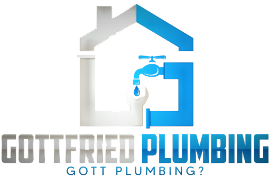When selecting a new water heater for your Boerne home, deciding between gas and electric models is more than just an appliance choice. It’s about efficiency, cost, and environmental impact. Both types offer unique benefits, from the rapid heating and energy cost savings of gas heaters to the simplicity and safety of electric ones.
In this guide, we will explore the key differences between gas and electric water heaters to help you determine which best meets your household needs and values.
Gas Water Heaters
Gas water heaters use natural gas or propane to heat water. They have a burner under a tank where water is stored and heated. When the water in the tank reaches a set temperature, the gas burner automatically shuts off. These heaters require venting to the outside to dispel gases produced during the combustion process safely.
Advantages of Using Gas Water Heaters
Gas water heaters are a favorite among many homeowners due to several distinct advantages:
Faster Heating: Gas heaters heat water quicker than electric models.
Cost-Effective Operation: Generally lower monthly operating costs due to cheaper gas rates.
High Capacity: Ideal for homes with high hot water demand; recovers faster between uses.
Less Dependency on Electricity: Operates during power outages, providing consistent hot water availability.
Disadvantages of Using Gas Water Heaters
Higher Initial Cost: Electric heaters are more expensive to purchase and install than electric heaters.
Requires Venting: Proper ventilation is needed for safety, which can complicate installation.
Safety Concerns: Potential risk of gas leaks, which requires vigilant maintenance.
Electric Water Heaters
Electric water heaters use heating elements inside the tank to heat water. They are powered by electricity and do not require external venting, as no combustion is involved. This makes them suitable for various installation locations, including closets and small spaces.
Advantages of Using Electric Water Heaters
Electric water heaters are popular for their convenience and energy efficiency, providing several benefits to homeowners:
Simpler Installation: Easier and often cheaper to install as they don’t require venting.
Safety: No risks associated with gas leaks, making them safer to operate.
Efficiency: Generally more energy-efficient, as almost all electricity goes directly to water heating.
Compact Design: Often smaller and more versatile in placement than gas models.
Disadvantages of Using Electric Water Heaters
Higher Operating Costs: Electricity can be more expensive than gas, leading to higher monthly energy bills.
Slower Heat Recovery: Takes longer to reheat water, which can be a drawback in households with high hot water demand.
Dependent on Electricity: Ineffective during power outages, leaving you without hot water.
Factors to Consider When Choosing Between Gas and Electric Water Heater
Installation Cost: Gas vs. Electric Water Heater
Installation of gas water heaters typically incurs higher upfront costs due to the need for ventilation and gas line setup, which are essential for safety and efficient operation. Additionally, gas water heaters may require more installation space and possibly an upgrade to your home’s electrical system to accommodate their needs.
On the other hand, electric water heaters generally offer a lower initial installation cost as they do not require gas lines or ventilation systems. They only need a dedicated high-capacity electrical circuit, simplifying the installation process.
Environmental Benefits: Gas vs. Electric Water Heater
Electric water heaters are an environmentally friendlier option for several reasons. First, they produce no emissions during operation, eliminating the release of harmful gases like carbon monoxide and nitrogen oxides into the atmosphere. This is a significant advantage over gas water heaters, which contribute to air pollution and greenhouse gas emissions through combustion.
Additionally, electric heaters are highly efficient, converting nearly all their energy into heat with efficiencies close to 98%. This efficiency reduces energy consumption and minimizes reliance on non-renewable energy sources.
While gas water heaters effectively provide hot water, their environmental impact cannot be overlooked. These units emit carbon monoxide and other pollutants while burning natural gas or propane, contributing to air quality degradation and climate change. Although newer models are more efficient and cleaner than older versions, they still fall short of the emission-free operation of electric water heaters. The overall environmental footprint of gas heaters depends largely on the efficiency of the specific model and the cleanliness of the gas production and delivery processes.
Energy Efficiency: Gas vs. Electric Water Heaters
Gas water heaters utilize a gas burner, which inherently loses some energy through combustion and exhaust gases. This results in lower efficiency levels compared to electric models. However, the lower cost of natural gas and propane can make these heaters more cost-effective over the long term, balancing out the initial inefficiency.
Electric water heaters are efficient as they convert almost all their energy directly into heat, with minimal energy waste. The absence of fuel combustion means no energy is lost through exhaust gases, which significantly enhances their overall efficiency. Moreover, the ability to power electric heaters with renewable energy sources like solar or wind further elevates their status as a sustainable option.
Long-Term Maintenance: Gas vs. Electric Water Heater
When deciding between gas and electric water heaters, it’s essential to consider each type’s long-term maintenance needs. Gas water heaters generally require more frequent maintenance than electric models. The combustion process in gas heaters can accumulate sediment and mineral deposits, which affect performance and efficiency. Regular maintenance includes flushing the tank and inspecting the burner to guarantee ideal performance and longevity.
|
Maintenance Requirement |
Gas Water Heaters |
Electric Water Heaters |
|---|---|---|
|
Tank Flushing |
Required |
Not Needed |
|
Burner Inspection |
Necessary |
Not Required |
|
Venting System Check |
Yes |
No |
|
Electrical Circuit Check |
Not Necessary |
Yes |
|
Average Lifespan |
8-12 Years |
10-15 Years |
Safety Considerations: Gas vs. Electric Water Heater
Considering safety is important with gas water heaters due to risks associated with natural gas or propane. Proper installation and regular maintenance are necessary to prevent gas leaks, which can cause fire hazards or carbon monoxide poisoning. You should also ensure adequate venting systems to expel combustion gases safely. We recommend regular inspections by professionals to maintain system safety.
Electric water heaters are considered safer than gas models as they do not involve combustion or emit gases. They require correct electrical wiring and grounding to prevent electrical hazards. These units should include safety features like temperature and pressure relief valves to prevent overheating and potential explosions. Regular checks of these safety components are advised to ensure safe operation.
Final Thoughts: Making the Right Water Heater Choice for Your Boerne Home
When selecting a water heater in Boerne, the choice between gas and electric models depends on several factors, including cost, energy efficiency, safety, and environmental impact. Gas water heaters offer rapid heating and lower operating costs but require more maintenance and have higher installation expenses. Electric water heaters, while more expensive in terms of energy use, provide added safety, simpler installation, and are more environmentally friendly due to their high efficiency and emission-free operation.
Deciding which water heater is right for your home involves balancing these considerations with your household’s needs.
If you need further assistance choosing the right home model or require professional installation services, contact Gottfried Plumbing. Our team is ready to provide a smooth selection process and expert installation.
Call (830) 331-2055 now!

